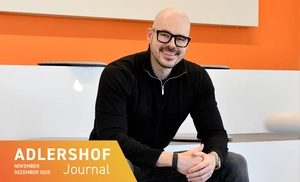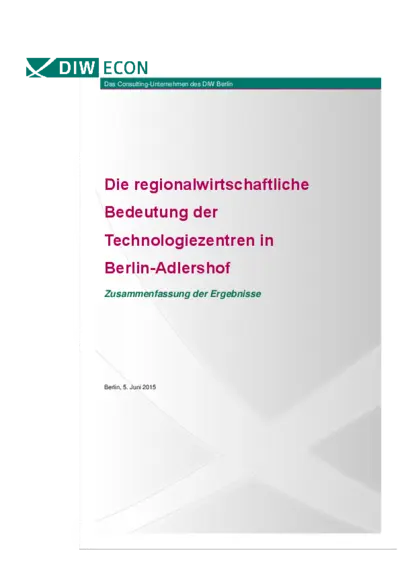Berlin Adlershof. Science at Work.
Discover the myth of Adlershof: founded in 1754, birthplace of German aviation, and site for research, film and television. Today the area has around 20,000 inhabitants, most located in the heart of the "old village". The Technology Park is close to the former airfield, now a landscape park.
The Berlin Adlershof Science City is one of the most successful high-technology locations in Germany—and Berlin’s largest media site. Renowned non-university research institutes, the natural sciences campus of Humboldt-Universität zu Berlin, 1,330 businesses and a rich history await you at Berlin-Brandenburg’s top Science, Business and Media hub. More than 34,000 people work and study in the science city of Adlershof, which covers an area of 4.6 km². Learn more about all the facts and figures…
News

HZB wins HR Energy Award 2025 for recruitment campaign
The research institute uses gamification elements to get more young people interested in IT training:
The Helmholtz Centre Berlin (HZB) is breaking new ground in attracting talented young people to IT training. HZB was presented with this year’s HR Energy Award for its “Go for IT! Recruitainment for IT training”…

In conversation with Tobias Hein
The online marketing manager at LUMITOS AG has a close on-off relationship with Technology Park Adlershof:
The Adlershof spirit is hard to shake off. Just ask Tobias Hein. The 40-year-old biotechnologist has maintained a devoted “on-off relationship” with the Technology Park since 2014. Today he works as online marketing…

“Stromberg is a part of me”
How business founder Markus Wogatzki became an extra in the German version of The Office and developed an AI app for Stromberg video quotes:
He’s a superfan of TV cult figure Stromberg and now an extra in the newest remake: Business founder Markus Wogatzki even developed an AI app for Stromberg video quotes. After ten years of radio silence, “Papa” is…

In Memoriam Klaus Thiessen
Optoelectronics specialist and solar energy pioneer:
Professor Klaus Thiessen passed away on 3 July 2025 at the age of nearly 98. The internationally recognised expert in optoelectronics remained a committed bridge-builder between science, industry, and society well…
Current journal issue






